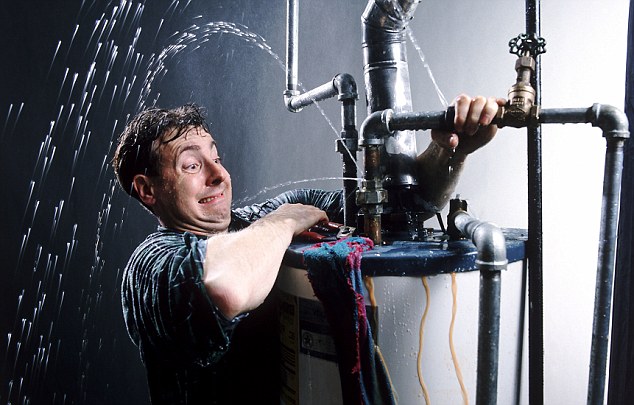
www.informationreviews.info
We all know someone who's had a plumbing emergency so let's not let it happen to us! In today's article we discuss just 8 steps you should take when the plumbing does down the drain.
So what are they? Let's find out!
1. Cut off the Main Water Supply
Let's start it off nice and simple by cutting the water supply off. Do so by locating your water supply valve which is usually located in your basement or on an outside wall in the utility area of your home. This main shutoff valve allows a full flow of water through the pipe when it’s open and can stop flooding in times of leaks!
2. Turn The Hot Water Heater Off
When cutting off the homes water supply make sure you turn the hot water heater off too as irregular amounts water can cause the heater damage in the long run. Eliminate any further problems by switching this off too. Please note the difference between an electrical and gas powered water heater.
For an electrical powered water heater, head over to the circuit breaker to turn it off or set it to 'pilot' so you don't have to relight the pilot light when ready switching back on.
3. Close Isolation Valves
Another important step we can't forget! Isolation Valves as they're known keep the flow of water closest to your faucets and toilets under control.
If the leak is in line with one of these fixtures close the isolation valve. By closing the valve and isolating the leak you may be able to turn your water back on for the rest of your home.
4. Open Outdoor Spigots
What's a Spigot? This refers to the end connection of a fitting that is connected to another fitting . It's a good idea to open outdoor Spigots as they allow water to drain out of your pipes without contributing to the mess at the site of the leak.
5. Grab a Bucket
Another simple one! More of a step to be extra safe! Even though you have followed the above steps, it is possible that remaining water in the pipes could still leak or drip out and therefore it's recommended you grab a bucket to catch any excess water.
6. Evaluate and Call
Emergency Plumbers are not cheap and it's worth trying to initially assess whether it really is problematic enough to call one or if it can wait a couple of days. Having done everything possible to containing a leak, we're only human and not everyone is a qualified plumber! If the problem really is an 'emergency' then put your safety first by calling who you need to!
7. Clean Up Excess Water
No one likes a mess and we all know excess water can potentially mean mold. Whilst waiting for a Plumber to arrive, ensure you have done all you can by cleaning up any water that's leaked. The longer your cabinets or furniture are soaked, the more likely they will sustain water damage.
8. Make the Area as Accessible as Possible
Plumbers can only do their job if they can reach the pipes! Allow them to get the job done by moving everything out the way. You might just save your new sofa from getting ruined!
For more information on News and Plumbing in general click here now.